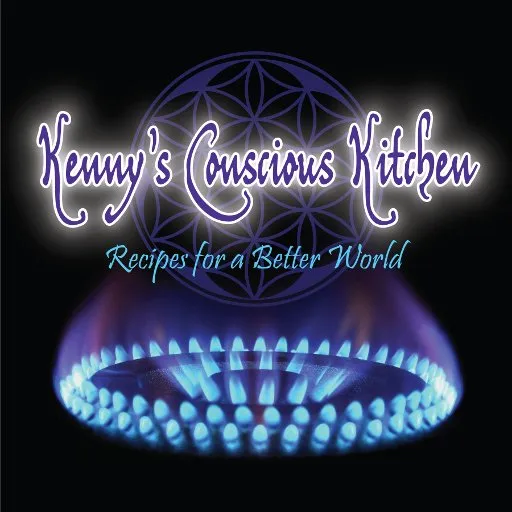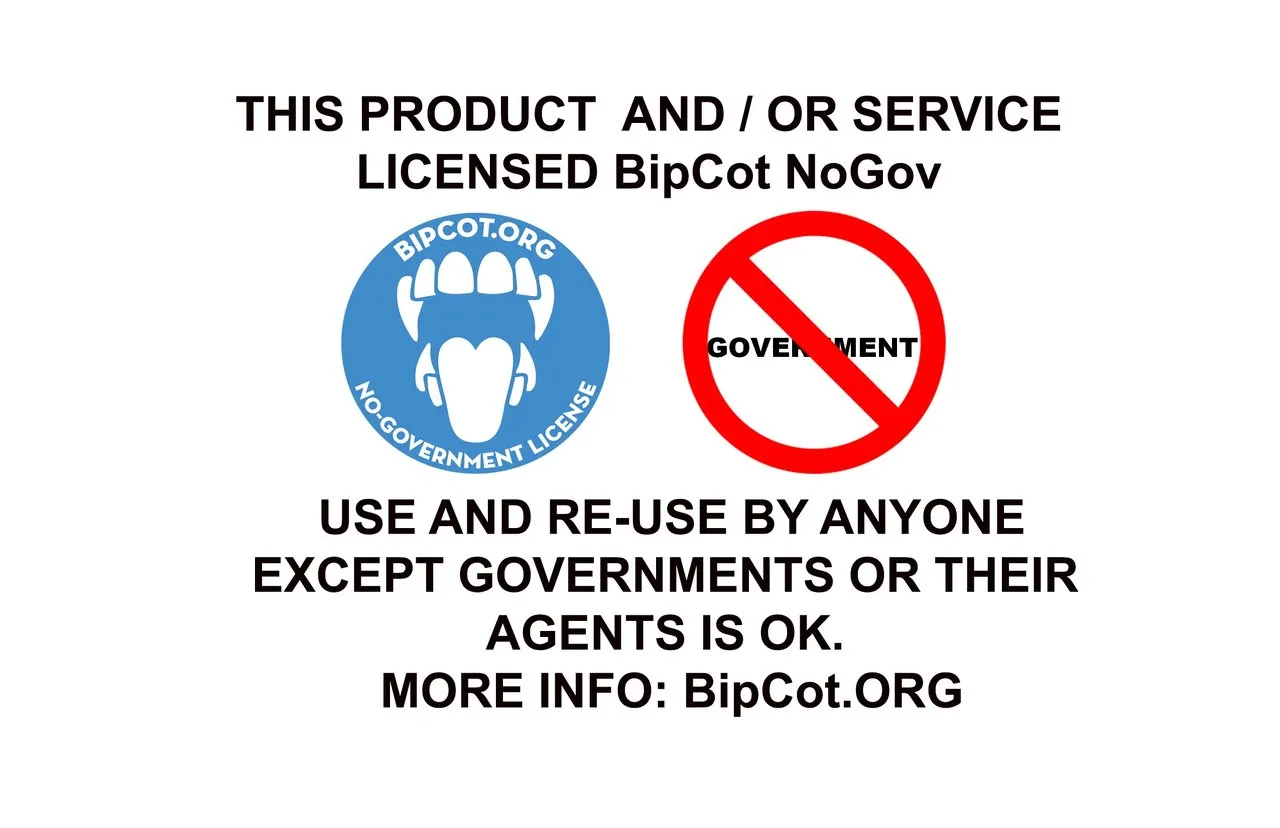Anarchism is not a romantic fable but the hardheaded realization, based on five thousand years of experience, that we cannot entrust the management of our lives to kings, priests, politicians, generals, and county commissioners. ~ Edward Abbey

My last post was called How I Became a Vegan, and shortly after posting it I realized that I should definitely do another write-up for becoming an anarchist, and as I'm typing this right now, I think I may do some others for various other labels/categories I fall into (no sneak peeks here).
The big difference between my path to anarchist & my path to vegan is that the former basically just meant learning what the word means, while the latter required some MASSIVE changes in my mindset, lifestyle, and unlearning a LOT of societal programming. Thankfully, most of my childhood was spent in science fiction & fantasy novels, so many of those beliefs about reality that many never even question seemed downright ridiculous to me from the first time I head them. (So much gratitude to Robert Heinlein, JRR Tolkien, and Michael Moorcock especially).

Schools keep saying he "doesn't show respect for authority"
As a kid, I didn't really align with the social structures I was introduced to, especially the government indoctrination camps I was sent to. The first school I went to, I was suspended for giving the yard-time security guards the middle finger. In second grade I got sent to the principal's office for something (don't remember what), and on the way out opened a breaker box on the wall and cut some random wires with my safety scissors. I would delete things off teachers' computers, pocket food from the cafeteria, destroy school property, and generally push back against the authorities in any way that I could.
Any time someone gave me an answer like "because that's the rule", "because I said so", "because it's always been that way", or anything similar, they basically became an enemy in my mind. The three main things that I feel helped shape the me that existed back then were:
- The emotional turmoil & screwy sense(s) of self due to extremely young parents, who separated shorty after my birth, and went through a decades-long, off & on battle for "custody".
- The ability to stand up for myself and not just accept authority because I was not physically assaulted for my behavior as a child. I did get put in the corner and have to do writing exercises and various other things as punishments, but they lended themselves more towards a very internal life experience rather than a fear/inability to say "NO" to bigger humans.
- I began reading novels at 3-4, so by the time I hit first grade, I had already experienced different timelines/realities, and I already knew that the protagonists were almost always pushing back against some bigger entity that wanted to control them and the world.
In high school they finally got to me a bit with some of their scare tactics, and I became much less of an obvious opponent to the system and started working more behind the scenes. I focused on breaking the rules any time I could without getting caught, often simply because there was a rule. I always drove over the speed limit, there are many drugs I tried in part because they were illegal, and it certainly played a big role in the choice to be a full-time drug-dealer for many years.

Connecting with the word Anarchist
The first time I really thought "Yes, I am definitely an anarchist" was when I found a copy of Emma Goldman's Anarchism and Other Essays (read it at The Anarchist Library, LibCom, or Gutenberg) at a little used book store in Seattle. I was killing time while my mom and baby sister were at some kind of kids' activity nearby, and there's no place I like to explore more than an as-yet-unvisited used book store! The bright orange cover of the book jumped out at me right away, and after reading the table of contents (you'd be amazed what you can learn about a book from its chapter titles), I immediately purchased it and went to find a place to sit & begin reading it.

Emma Goldman: Wikipedia & Anarchist Library
The book starts off with a (relatively) long biography of Emma (of whom I had never heard before). For those of you who are in those same shoes, I cannot recommend highly enough doing some research into this absolutely brilliant, fiercely brave, inspirational human. She is a major force in the development of anarchist philosophy, and though she didn't identify as a feminist, she represented all the best things it has to offer. The first chapter (Anarchism: What It Really Stands for) begins with a poem by John Henry Mackay (Anarchist Library & Wikipedia):
Thou art the grisly terror of our age.
"Wreck of all order," cry the multitude,
"Art thou, and war and murder's endless rage."
O, let them cry. To them that ne'er have striven
The truth that lies behind a word to find,
To them the word's right meaning was not given.
They shall continue blind among the blind.
But thou, O word, so clear, so strong, so pure,
Thou sayest all which I for goal have taken.
I give thee to the future! Thine secure
When each at least unto himself shall waken.
Comes it in sunshine? In the tempest's thrill?
I cannot tell
--but it the earth shall see!
I am an Anarchist! Wherefore I will
Not rule, and also ruled I will not be!
By the time I finished reading that book (before our trip was over), I was absolutely in love with the concept of anarchy, and just felt SO good to know that there was a word, a philosophy, a history, for this innerstanding I had had my entire life. I had recently begun listening to a lot of podcasts, interviews, and talks, and after reading this book my most common choices were Stefan Molyneux (the first result from my anarchy searches) and Peter Joseph (because I had just binge-watched the Zeitgeist movies). It's amazing how much that searching for synthesis shapes my life experience right now.

So what does anarchist actually mean?
Quite simply, anarchy means "without rulers". Thus an anarchist is one who does not believe in the imaginary authority of rulers (be they religious, governmental, or any other kind). It is important to make a distiction between rules and rulers, one being agreements made between humans on the way they act (or don't), and the other being humans who create, but are not subject to, the rules for a given location/community. It's also important to make a distinction between leaders and rulers, one being the humans who go first, lead the way, act as an example, and the other being the humans who force others to behave in a certain way or accomplish a certain thing through force & coercion.
From Etymology Online:
1530s, "absence of government," from French anarchie or directly from Medieval Latin anarchia, from Greek anarkhia "lack of a leader, the state of people without a government" (in Athens, used of the Year of Thirty Tyrants, 404 B.C., when there was no archon), abstract noun from anarkhos "rulerless," from an- "without" (see an- (1)) + arkhos "ruler, commander, chief, captain" (see archon).
From 1660s as "confusion or absence of authority in general;" by 1850 in reference to the social theory advocating "order without power," with associations and co-operatives taking the place of direct government, as formulated in the 1830s by French political philosopher Pierre-Joseph Proudhon (1809-1865).
"Either the State for ever, crushing individual and local life, taking over in all fields of human activity, bringing with it its wars and its domestic struggles for power, its palace revolutions which only replace one tyrant by another, and inevitably at the end of this development there is ... death! Or the destruction of States, and new life starting again in thousands of centers on the principle of the lively initiative of the individual and groups and that of free agreement. The choice lies with you!" "The State: Its Historic Role" by Prince Pëtr Kropotkin (1842-1921) (Wikipedia & Anarchist Library,

But what's in a word?
Being a self-identified anarchist is a rough one, as not only does that average person not have any idea what it means, they often have not-so-subtle programming to believe that it represents one of those things that they know nothing about but should be scared of. For this, and other reasons, I generally don't open with the word (or any other potentially triggering words) when I don't know where someone else is coming from.
When discussing anarchy with the uninitiated, I simply discuss the principles of individual sovereignty, voluntaryism, and the non-aggression principle. The same goes for any other topic around which there is some culturally charged term. Skip the term and talk about the principles/facts instead, no point causing cognitive dissonance are dealing with someone getting defensive.
That same approach of getting straight to the principles & concepts helps avoid a lot of the unnecessary "debate" between anarchists of various different hyphenates (-mutualists, -syndicalists, -capitalists, -primitivists, -communists, etc). This in-fighting has surely been one of the most annoying things to see online from people who are generally pretty intelligent, thoughtful, and pragmatic. SO much energy is wasted bickering about things that we can't even attempt until we get rid of the state & the belief in authority.
Over the years, I haven't exactly felt my resonance with the anarchist diminish, but I have found that it doesn't come nearly close enough to a good descriptor or identifier for me (never mind all the misconceptions & faulty definitions people have). The ideas of non-violence, freedom, respect for sovereignty seem so very foundational to any form of principles that labeling myself as someone who doesn't support force or coercion should be completely unnecessary.

We're all born anarchists
How many children have you heard of that go through a phase of basically saying "no" to everything? Often they change their minds immediately and decide they do want whatever was offered/asked of them. This is those children learning to practice their self-ownership, practicing individual sovereignty. The problem that occurs is when parents force their will on those children, violating their sovereignty and beginning the cultural programming that you are subject to the authority of others.
Over the ~25,000 hours that children spend in government indoctrination camps, plus untold hours being programmed by television, parents who are equally programmed, and a general cultural model of "might makes right" and "the way it has been is the only way it could possibly be" eventually grind many down into subservient citizens (property of the corporation calling itself government).
The great news is that this programming can be unraveled through the glories of the internet, conversation, and critical thinking. It certainly takes time to rewrite that much brain programming, but the process can be kicked into high gear through psychedelics, being on the receiving end of the state's thugs, or experiencing a transformational event like Rainbow or Anarchapulco.

Suggested Reading
- The Tao Te Ching
- Spend a few hundred hours digging through The Anarchist Library
- FREEDOM! by @adamkokesh
- Everything You Wanted to Know About Anarchism, but Were Afraid to Ask
- Mutual Aid: A Factor of Evolution by Peter Kropotkin
- The Starfish & The Spider: The Unstoppable Power of Leaderless Organizations by Ori Brafman & Rod A. Beckstrom
- The Conscious Resistance: Reflections on Anarchy & Spirituality & Manifesto of the Free Humans by Derrick Broze & John Vibes
- The Culture Series by Iain M. Banks (Science Fiction, depicting a galaxy-wide anarchist society [some of the best books I've ever read])
- Anarchism and Libertarianism: Two Sides of the Same Coin by David S. D'Amato
- The Dispossessed by Ursula K. Le Guin (fiction)
- What is Property? by Benjamin R. Tucker
- Grand Unified Political Theory - Anarchy, Libertarianism, Capitalism, and Socialism by @dantheman
Image Sources
Trouble
Emma Goldman
Anarchism and Other Essays
Word Cloud
Tucker Quote
Born Anarchists
Edgy Teens

If you enjoyed this, you may enjoy some of these highlights of my blog:


